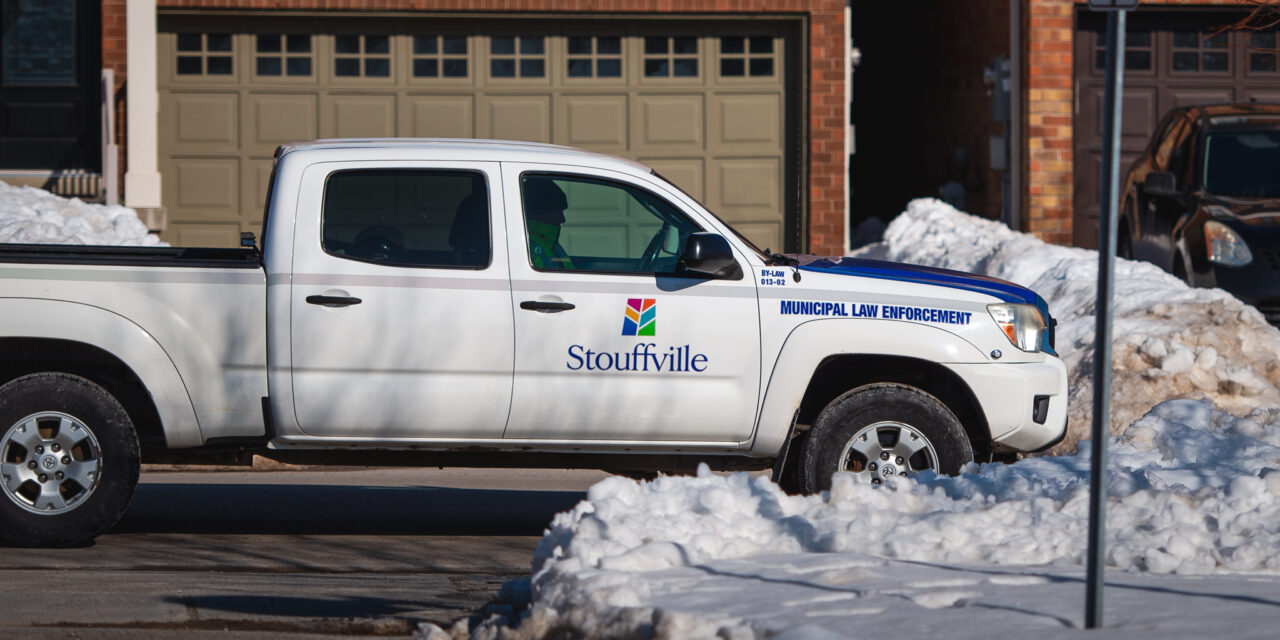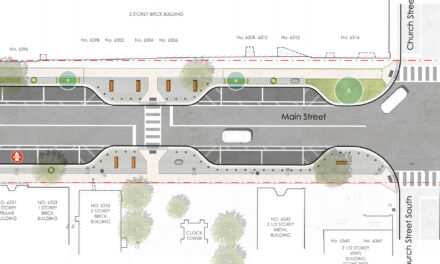- Stouffville’s by-law officers voted unanimously to join Teamsters Local Union No. 419 in September.
- The organizing effort was driven by concerns over officer safety, scheduling difficulties, and declining morale within the department.
- The decision was made by a unit largely composed of temporary part-time employees.
- Collective bargaining began on Tuesday, Dec. 3, with hopes that an agreement can be reached within 10 bargaining sessions.
- Bullet Point News spoke with Teamsters 419 Vice President Owen Lane and interviewed multiple Stouffville by-law officers on the condition of anonymity.
Officers raised several key issues that fueled their push for unionization, including concerns about personal protective equipment (PPE), unsafe working conditions, difficult scheduling, inconsistent enforcement policies, and a deteriorating workplace environment.
“By-law officers employed by the Town of Whitchurch-Stouffville voted 100% to join the union when we didn’t even run a campaign, which speaks volumes,” Teamsters 419 VP Owen Lane said. “They did it all on their own, and it’s the first time I’ve seen a 100% vote for certification in my life—and I’ve been an agent at the Local since 2008.”
“Our bargaining priorities have to revolve around safety and scheduling, which were the biggest concerns I’ve heard from my members,” he added.
A recurring area of interest among interviewed officers is the increasing risk of attacks on peace officers, making the provision of adequate, individually assigned PPE a top priority. While some progress has reportedly been made since organizing efforts began, officers expressed long-standing frustrations over expired bulletproof plates not being replaced and the unhygienic sharing of ill-fitting vests.
A recent assault on a municipal by-law officer in Caledon, where a group attacked the employee late at night as they were issuing a parking ticket, has highlighted these concerns for Lane.
“Based on my understanding, it was a ticket writer who was not wearing PPE,” Lane explained. “But another big issue was that there was nobody, no supervision or management, to get a hold of when the person was in hospital.”
The deployment of unsupported officers has raised further safety concerns within Stouffville’s department, as have operations in areas without reliable means of communication. Of particular worry are “dead zones,” most often found in rural parts of the municipality, where officers are unable to call for help if they encounter a threat or emergency situation.
“I’ve asked the Town to review the incident in Caledon and see what they could learn to better protect their officers,” Lane added. Proposed solutions include increasing the number of officers deployed simultaneously or pairing officers in high-risk areas to ensure adequate support.
Officers also voiced dissatisfaction with the current scheduling system. Monthly schedules can be inconsistent and are occasionally released just days before the start of the work period, Bullet Point News was told, making it difficult for employees to plan their personal lives.
Sources within the department said this approach has caused stress and burnout, which can undermine their ability to perform effectively. Many hope union representation will lead to a solution that restores a better work-life balance.
The department currently operates with four permanent full-time staff, two temporary full-time staff, and 11 temporary part-time employees. According to interviewed officers, some part-time employees work as little as once every two weeks, and Lane sees increasing the number of full-time workers and reducing reliance on temporary staff as major objectives.
“We always try, in all of our collective agreements, to make as many employees full-time as possible, and part-timers are there to alleviate scheduling conflicts,” Lane said. Already trained and experienced part-time employees could then be promoted to full-time roles as needed.
Bullet Point News asked the Town why the department relies so heavily on temporary part-time employees instead of increasing permanent staffing levels, however no response was provided.
Officers also expressed frustration with unclear and inconsistent enforcement directives, including alleged influence from management and Members of Council on when, where, and how to enforce by-laws. Part-time employees, in particular, struggle with unclear or conflicting instructions as they may not be aware of directives issued while they are off.
This has resulted in uneven enforcement practices, Bullet Point News was told. Unionization is seen as a potential path to establishing clearer policies and more consistent communication, enabling fairer enforcement without undue influence—a priority officers view as essential to effectively carrying out their duties.
Tensions in the department have reportedly escalated since the sudden removal late last year of former manager Teresa Hector. Respected by staff and seen as a bridge between officers and upper management, her departure is viewed as a significant loss. Two officers were also let go following a January restructuring, events perceived by many as a show of force from management.
Operating in what has been described as a “culture of fear,” interviewed officers say they are now hesitant to raise concerns due to the possibility of losing their jobs. Employees also cited a breakdown in trust and a desire to return to a more collaborative relationship with management.
“There were some terminations that happened, some bullying going on in the workforce, some intimidation…When you add all of this together, people are not feeling protected,” Lane detailed. “I have no faith that management is consistently looking after their best interests, and I think these concerns were uniformly felt by all members of the department.”
Prior to the initiation of bargaining, Bullet Point News submitted officers’ grievances to the Town in a request for comment.
“Upon reviewing the information provided, we noticed several inaccuracies in the information outlined,” the Town responded without specifying their points of disagreement. “Bargaining with Teamsters has not yet commenced, and commenting at this stage would not be fair to the process or to our staff.”
“We value our relationship with staff and Teamsters and are committed to engaging in a constructive bargaining process,” the Town added. “The safety and well-being of our staff remain our top priority.”
“I would disagree with that,” Lane said in response to the Town’s concluding statement. “These issues are the whole reason we’re here, the whole reason we’re going to be at the table this week. We’re hopeful to see them resolved during bargaining.”





